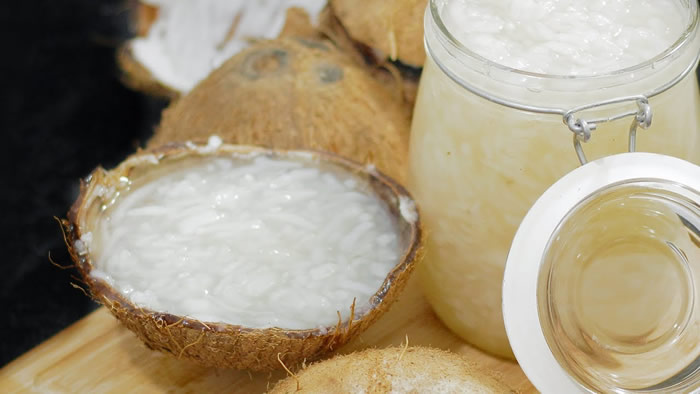MAY 06, 2021 – Overseas Filipinos (OFs) in Canada were encouraged to support makapuno (coconut sport) farmers in the Philippines as a way to boost countryside development, expand opportunities for overseas investments, and transform the national coconut industry.
“The coconut, known to be the tree of life, remains to be one of the most important crops of the country. It is the third most dominant crop after rice and corn. Coconut products are among the country’s major exports. It is a very interesting crop with exciting business opportunities surrounding it, including makapuno, which some describe as a mutant coconut,” said HE Rodolfo Robles, Philippine Ambassador to Canada during the opening remarks of the Trabaho, Negosyo, Kabuhayan (TNK) webinar held March 27.
Makapuno is considered a genetic aberration of the coconut with a full and thick endosperm. Unlike the normal coconut, the makapuno has no water content but can serve as a high-value product. It’s used to flavor ice creams, cakes, candies, and pastries, while the liquid endosperm contains galactomannan, which has pharmaceutical and cosmetic applications.
Despite its wide application, Philippine makapuno exports have been on a steady decline from 2011-2019 in part because of competitive pressures from Thailand and Indonesia, said Erlene Manohar, Deputy Administrator of Philippine Coconut Authority (PCA).
To enhance the competitiveness of the local makapuno industry and plug the supply 3,000 metric ton/year supply gap, Manohar called for inter-agency convergence in the creation of an embryo-cultured makapuno roadmap with the PCA, the Department of Agriculture, the local government units, the Department of Science and Technology, and the Department of Trade and Industry (DTI).
“Makapuno means full. It is full of opportunities and hope for the Filipino farmers. Let us support this program – an agri-business investment platform for OFIs. Get involved for the fulfillment of the industry vision,” she encouraged.
On its part, the Department of Agriculture stands ready to support aspiring and existing agri-entrepreneurs through its technical mentoring services, loan packages, and market linkages, according to Dr. Josyline Javelosa, Agriculture Attaché of the Philippine Embassy in Washington DC.
DTI, through the Philippine Trade and Investment Center in Toronto, bridges OFs in Canada to local makapuno farmers. Under the Philippine Makapuno Industry and Agribusiness Investment Promotion Program, OFs based or residing in Canada can help plant embryo cultured makapuno trees in Alabat, Quezon Province, explained Senior Trade Commissioner Maria Roseni M. Alvero. The project aims to initially raise investments from Filipinos ins Canada to plant at least 1000 trees across ten hectares.
Based on an initial study, the first five years will cover field planting to flowering. In the sixth year, the trees are expected to produce nuts and investment returns will start to materialize. The profits from the investment will be held in a trust by the Philippine Coconut Research and Development Foundation and deposited to Landbank of the Philippines.
“The Philippine Makapuno project in Alabat has a potential return of P9.91 million, that is three times the investment from years 6-15,” said Labor Attaché Margarita Victorino.
The municipality of Alabat is home to 1.7 million coconut trees planted across 12,000 hectares. While the makapuno trees for the said project have yet to fully mature, Alabat Mayor Fernando Mesa is hopeful about the future prospects offered by the tree of life to support economic development.
“We really dream to make Alabat as a Makapuno island. When we started this project, Jollibee talked with us, pag namumunga na raw ang makapuno, wag sila kalilimutan. They are ready to be the market of this product,” he shared, referring to the homegrown F&B giant. He suggests that the funds from OFs in Canada can help finance caretaker fees, irrigation systems, and farm-agri inputs.
To sustain the development of the makapuno industry, Mesa stressed the importance of harmonizing investment initiatives following the signing of RA 11524 or the Coco Levy Fund Law. The new law provides for a P75 billion omnibus funding that would support coconut farmers through the provision of seedlings, loans, scholarships, training, equipment, and R&D.
The Coco Levy Fund Law is expected to increase the profitability of makapuno farming for farmers and OFs alike, said STR Alvero. She expressed hope that the memorandum of understanding between the Alabat LGU and government agencies will be reformulated, setting a model for other LGUs to follow.
The Trabaho Negosyo Kabuhayan episode was jointly organized by The Philippine Trade and Investment Center – Toronto and the Philippine Embassy in Ottawa and hosted by Embassy Economic Officer and Consul Jeffrey Salik. The webinar aims to invite repatriated OFWs to become agri-entrepreneurs and partners in national development. ♦
